Research has indicated that the number of Americans who are stressed at work is high and it’s only getting higher. Working under stress can result in all types of problems. You may get more colds and flus or you may even be at a higher risk of developing heart disease and metabolic syndrome.
Stress at work is common, since finding a low-stress job is so difficult, if not impossible. A more realistic approach is to adopt effective coping strategies to reduce stress at your current job and any other high-stress situations you might find yourself in.
How do you manage to keep your cool under so much external demand?
If you're finding it hard to cope with work stress, here are some stress management techniques you can try.
Act Instead of React
We experience stress once we feel that situations are out of our control. It activates the stress hormone and wears down confidence, concentration, and well-being.
Identify the aspects of the situation you can control and the aspects you can't—typically you're in control of your actions and responses but not in control of macro forces or someone else's tone.
Do everything you can to help the situation, then simply let go of the rest. If you aren't in control, it isn't your problem to handle!
Take A Deep Breath
If you are feeling overwhelmed or are coming out of a tense meeting, take a few minutes of deep breathing to restore balance and clear your head.
Simply inhale for five seconds, hold, and exhale in equal counts through the nose. It's like getting the calm and focus of a 90-minute yoga class in three minutes or less, right at your desk.
Eliminate Interruptions
Most people are bombarded during the day. Emails, phone calls, pop ins, instant messages and sudden, urgent deadlines all conspiring together to make today's workers more distracted and stressed than ever.
While you may not have control over the interruptions, you can control your response. Respond in one of three ways: Accept the interruption, diagnose its importance and make a plan, or cut it off.
Many interruptions are recurring and may be anticipated. You can also train those around you by answering email during certain windows, fixing up office hours to talk in person, or closing the door when you need to focus.
Schedule Your Day For Energy And Focus
Most of us go through the day using a pushy approach, thinking if we work the full eight to 10 hours, we'll get more done. Instead, productivity goes down, stress levels go up and you have very little energy left over for your family.
Schedule breaks throughout the day to walk, do a breathing exercise or stretch at your desk. If you have intense concentration for about 90 minutes, followed by a recovery break, we can clear the stress build up and rejuvenate, and will likely get much more done!
Eat Right And Sleep Well
Maintaining a poor diet will stress your system. Try to focus on creating a low-sugar and high-protein diet that will fuel you consistently throughout the day. Also if you're not sleeping well, you're not getting the rejuvenating effects. According to the CDC, an estimated 60 million Americans do not get sufficient sleep which is a critical recovery period for the mind and body.
If racing thoughts keep you from falling asleep or you wake up in the night and can't get back to sleep, do a simple breathing technique: Cover your right nostril and breathe through your left for three to five minutes.
Change Your Story
Your perspective of stressful office events is typically an internal interpretation of the facts, often seen through the filter of your own self-doubt.
If you can take a step back and get a more objective point of view, you'll be more effective and less likely to take things personally.
Cool Down Quickly
When you feel frustrated or angry, the heated feeling that rises in your body can cause you to react in ways you're sure to regret.
Instead of immediately overreacting, try a "cooling breath" technique: Breathe in through your mouth as if you are sipping through a straw, and then breathe out normally through your nose.
You'll feel a cooling, drying sensation over the top of your tongue. It's like hitting the pause button, giving you time to think about your response. This technique is so powerful it's likely to even calm the other person down.
Identify Self-Imposed Stress
Learn to stop self imposing stress by building your own self-confidence rather than seeking others approval. If you're too caught up in others' perceptions of you, which you can't control, you become stressed out by the minute or participate in avoidance behaviors like procrastination. Ironically, once you shift your focus from others' perception of your work to the work itself, you're more likely to impress them and calm yourself down.
Prioritize Your Responsibilities
With competing deadlines and fast-changing priorities, it's critical to define what's truly important and why.
It's important to understand your role in the organization, the company's strategic priorities, and your personal goals and strengths.
Select your to-do list by focusing on those projects that will have the most impact and are best aligned with your goals.
Reset The Panic Button
If you're panicking or short of breath before a presentation, you can quickly reduce your anxiety with the right acupressure point. Positioning your thumb on the side of your middle finger and applying pressure instantly helps regulate your blood pressure.
Don't be hard on yourself, try offering words of support. If you can convince yourself you can do it, then that's half the battle.
Simply view obstacles as opportunities to learn and grow, these lessons can help you develop the wisdom needed to inspire others.

